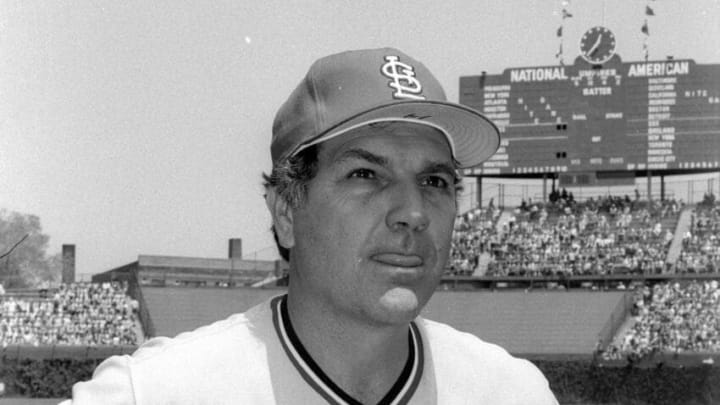St. Louis Cardinals legend Ken Boyer has an interesting career and an interesting history with the Baseball Hall of Fame. However, nearly 40 years after his death at the age of 51 due to lung cancer, Boyer has received some traction for getting into the Hall. But he hasn’t quite reached it.
But when you look at his career, it’s truly a shame that Boyer isn’t a) in the Hall of Fame and b) wasn’t able to get in while he was still alive.
St. Louis Cardinals third baseman Ken Boyer has a track record that should have him in the Baseball Hall of Fame
Ken Boyer played for 15 seasons in the majors from 1955 through 1969 and he spent 11 of those seasons with the St. Louis Cardinals.
Boyer’s peak was in the era where there were two All-Star Games per season (that happened from 1958 through 1962 for the oldest reason in the book: money) so despite being an All-Star in seven different seasons, he was an 11-time All-Star. He also won five Gold Gloves, won the 1964 NL MVP, and came in the top ten in MVP voting three more times.
He was a career .287/.349/.462 hitter with an OPS+ of 116. He had eight seasons where he had 23+ homers and eight seasons of 90+ RBI in an era that was extremely pitcher-friendly. He also had eight seasons with at least 5.0 rWAR and a career 62.8 rWAR.
That WAR is tied for 14th among primary third basemen ever. Coincidentally, he is tied with a Hall of Famer (Frank “Home Run” Baker).
Boyer is among many third basemen that have been snubbed by the Baseball Hall of Fame voters, though. When he retired after the 1969 season, he was just the second third baseman of all-time to hit 250+ homers (he had 282 and Eddie Mathews was the only one ahead of him. He retired after the 1968 season with 512 homers). He also retired with the second-highest slugging percentage among third basemen with more than 10 years in the majors (again, Mathews was ahead of him).
Boyer was overshadowed in many ways by Mathews because he was, at the time, the best third baseman ever so his case is very much like the cases of Graig Nettles, Buddy Bell, and others: Just because they weren’t Mike Schmidt or Eddie Mathews doesn’t mean that you shouldn’t be a Hall of Famer.
Even with Mathews’ career (512 homers, 143 OPS+, 96.1 rWAR), it took him five ballots to get into the Hall of Fame. When Boyer came on the ballot in 1975, there were only two third basemen that were inducted into the Hall of Fame: Pie Traynor in 1948 and the aforementioned Frank “Home Run” Baker in 1955 … and Baker was inducted via the Veterans Committee.
Since the Hall of Fame had different regulations at the time for voting, Boyer was on the ballot five times before he fell off of the ballot. Boyer didn’t garner five percent of the vote on any of the five ballots so he fell off of it after 1979.
He passed away in 1982 but in 1984 for the Class of 1985 ballot, the Hall of Fame put him and 10 others back on to the ballot because of complaints for years over a number of players being overlooked for the Hall.
At the time, players were allowed to have 15 years on the ballot so Boyer was on the ballot for 10 more years but got between 11.5 and 25 percent of the vote each time. His last year of eligibility was in 1994. Of the 11 players, only Santo is in the Hall of Fame now but he had to wait for the Veterans Committee to vote him posthumously in the Class of 2012.
Since then, Boyer has appeared on new Veterans/Era Committee ballots numerous times since 2003 and he was on the Modern Baseball Era Committee for induction this coming summer. However, he garnered less than five votes. He needed 12/16 for induction.
Being on a Veterans Committee is half of the battle but that still doesn’t negate that Ken Boyer is more than deserving of being the Baseball Hall of Fame.
